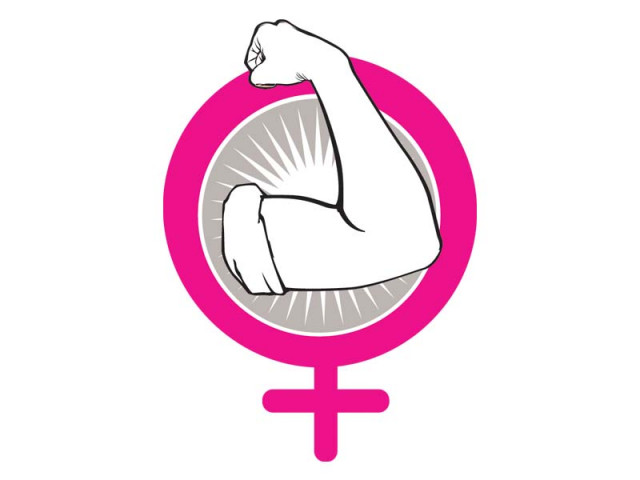International Women’s Day: On provincial stage, women issues still glossed over
Rights activists note movement in legislation for gender equality, but say it is time to walk the talk.

Rights activists note movement in legislation for gender equality, but say it is time to walk the talk.
Just two days before the International Women’s Day, amendments were made to the Punjab Muslim Family Laws Act 2015. The penalty for underage marriage has been increased, with offenders facing a prison term of up to six months and a Rs50,000 fine. The failure to pay alimony to a woman or a child will lead to enhancement of payment.
Why, then, are the women of Pakistan continuing to suffer? “There is too much emphasis on enactment of legislation but not enough stress on implementation of the laws,” said Fauzia Waqar, chairperson of Punjab’s Commission on Women.
Mahnaz Rehman, resident director of Aurat Foundation Karachi, agreed that implementation of laws is not satisfactory. “I suggest that the government and/or judiciary should make it mandatory that after the enactment of any law, rules of business and other necessary measures will be taken within three months. If concerned departments don’t do it, they should be summoned in the court,” she said. Rehman pointed out that though the Sindh Assembly enacted a law against domestic violence in 2013 it has not drawn up the rules of business or constituted protection committees yet.
Lawyer and human rights crusader Maliha Zia Lari believes that enforcement is sometimes held back by budget problems.
“There are only three to five medico-legal departments in all of Karachi, and none in Peshawar,” she said, sharing that medico-legal officers do not have basic facilities like a space to examine women. “We have heard cases where they had no electricity and had to examine rape victims in the light of cell phones. How can we have implementation, then?”
Women’s issues – a federal issue?
“Women are 50 per cent of the population. How can issues related to them be just provincial?” asks Lari. In her opinion, the 18th Amendment may have had a positive impact in other areas of development, but not when it comes to issues related to women. “We are happy about legislation regarding Child Marriage, but that is in Sindh and Punjab. Khyber-Pakhtunkhwa and Balochistan will not even look at it,” she said.
Lari also pointed out that it was unfortunate that the country no longer has a separate ministry for either women’s affairs or human rights.
Silver linings
The Punjab government, according to Waqar, has set up a helpline for women exclusively. “Call 080093372 and you get help of every kind if you are a woman in distress.” She expressed satisfaction over the improvement in data collection.
Activist and researcher Nazish Brohi said that this is “a time of huge possibilities, we have more space”. She said that it was encouraging that more Swara cases were being reported and more people were being arrested for crimes against women, showing a slow but stable improvement.
A changing Pakistan
As the dynamics of Pakistani society change, the lines between urban and rural culture continue to blur. “The massive scale of urbanisation has altered the demographic culture,” said Brohi.
Talking of provincial comparisons, Brohi said there is huge provincial variation. “What is true for Balochistan doesn’t resonate with the culture in Sindh.”
The situation is not bleak in Waqar’s opinion. However, proliferation of small arms in Pakistani society has affected the dynamics of violence against women (VAW) too. “In Punjab, from 161 cases in 2012 to 205 cases in 2014, there is a definite increase in the use of small arms,” she said.
“Religious extremism has increased the incidences of violence against women,” said Rehman. She added that justice and peace are prerequisites of women empowerment. For this, we have to “deweaponise society,” suggested Rehman.
Published in The Express Tribune, March 8th, 2015.



















COMMENTS
Comments are moderated and generally will be posted if they are on-topic and not abusive.
For more information, please see our Comments FAQ